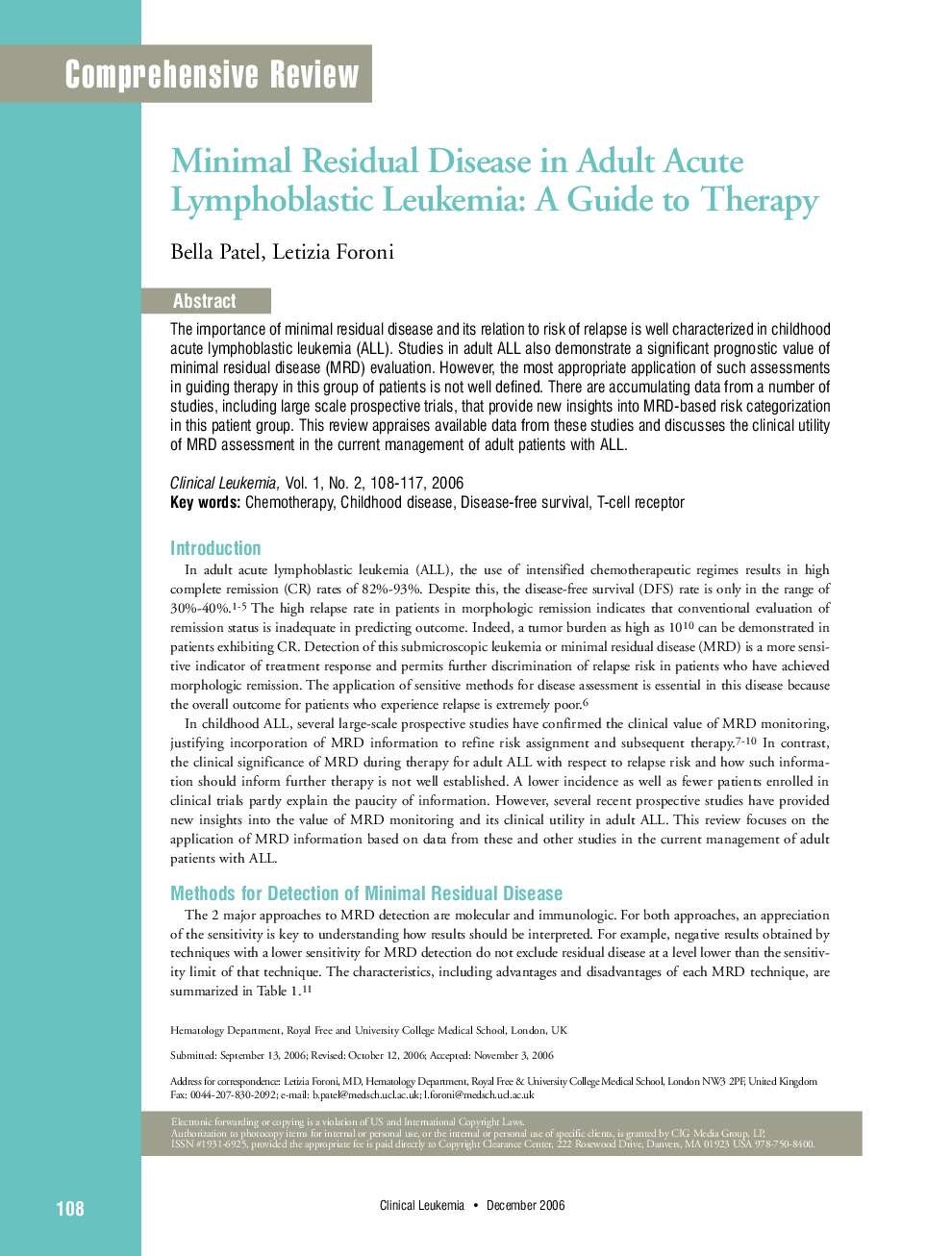| Article ID | Journal | Published Year | Pages | File Type |
|---|---|---|---|---|
| 3981094 | Clinical Leukemia | 2006 | 10 Pages |
Abstract
The importance of minimal residual disease and its relation to risk of relapse is well characterized in childhood acute lymphoblastic leukemia (ALL). Studies in adult ALL also demonstrate a significant prognostic value of minimal residual disease (MRD) evaluation. However, the most appropriate application of such assessments in guiding therapy in this group of patients is not well defined. There are accumulating data from a number of studies, including large scale prospective trials, that provide new insights into MRD-based risk categorization in this patient group. This review appraises available data from these studies and discusses the clinical utility of MRD assessment in the current management of adult patients with ALL.
Related Topics
Health Sciences
Medicine and Dentistry
Oncology
